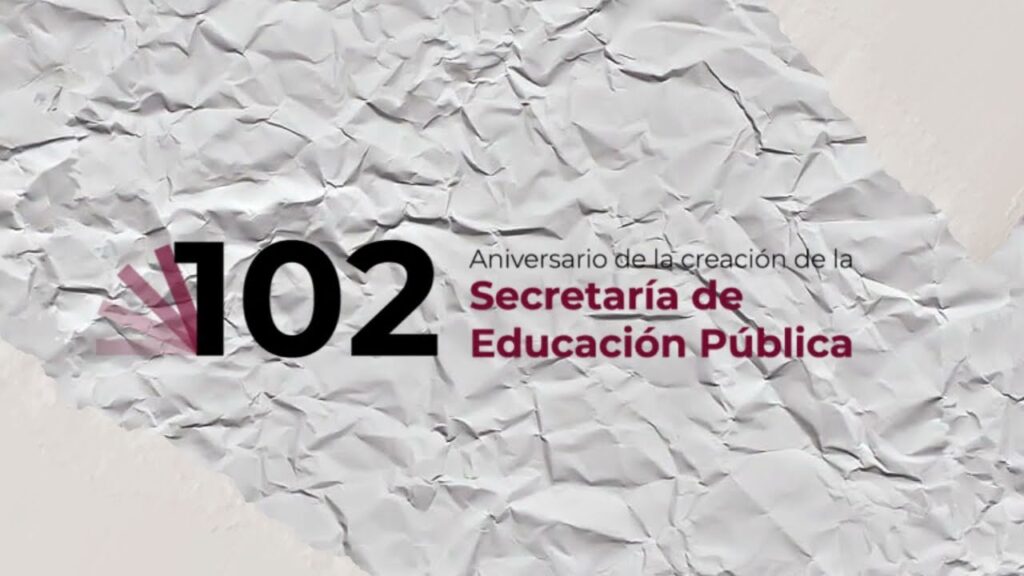Exploring the Roots: 102 Years of Education with SEP in Mexico
The Secretariat of Public Education (SEP) in Mexico has been a cornerstone of the country’s education system since its inception in 1921. Marking its 102nd anniversary, SEP’s establishment heralded a new era of educational reform and enlightenment, designed to unify and offer quality education throughout the nation. Rooted in the ideals of the Mexican Revolution, it aimed to eradicate illiteracy and educate citizens in the spirit of social justice and equality.
Spearheaded by José Vasconcelos, the first Minister of Education, SEP’s mission was to craft an educational framework that was secular, free, and mandatory. This was a remarkable venture, considering the diverse and multilingual nature of Mexico. The SEP launched ambitious programs such as the “Rural Missions,” which brought education to the most remote communities, often adapting curricula to incorporate indigenous languages and traditions as a vital part of achieving cultural literacy.
Over the course of its history, SEP has undergone numerous transformations, each responding to the evolving needs of Mexican society. It has pioneered the integration of technology in classrooms, championed bilingual education, and worked tirelessly to improve the conditions for teachers and students alike. Today, 102 years later, the SEP remains committed to fostering an education system that resonates with the values of diversity, inclusiveness, and progress.
The Evolution of Mexico’s Education: A Century with the SEP
The history of Mexico’s education system has been profoundly influenced by the creation of the Secretaría de Educación Pública (SEP) in 1921. This institution emerged amidst a period of intense cultural and political reform following the Mexican Revolution. Its establishment represented a pivotal moment for Mexico, as it signified the state’s commitment to education as a tool for nation-building and social equity. The SEP’s early years were marked by ambitious efforts to combat illiteracy and integrate diverse cultural expressions into the national identity.
Throughout the 20th century, the SEP embarked on various initiatives to expand educational coverage, particularly in rural and marginalized communities. The 1940s and 1950s saw the introduction of the ‘cultural missions’ program which aimed to bring education to the most remote corners of the country. Furthermore, in the 1960s and 1970s, Mexico experienced an educational boom where universities and technical institutions proliferated, reflecting the country’s industrialization and economic expansion. This era also witnessed the inception of the National Commission for Free Textbooks (CONALITEG), providing essential educational materials to students nationwide.
The closing decades of the 20th century were characterized by efforts to modernize education and align it with international standards. The 1993 educational reform introduced important changes to the curriculum, seeking to develop critical and reflective thinking alongside traditional knowledge. This period also saw a focus on improving teacher qualifications and training, recognizing that quality education is contingent upon skilled and prepared educators.
Entering the 21st century, the SEP faced the new challenge of incorporating technology into education. Digital platforms and multimedia resources became essential tools for learning, as efforts to close the digital divide intensified. Programs like Enciclomedia attempted to integrate interactive digital content with classroom learning, although its success varied. The digital era also prompted substantial revisions to pedagogical approaches, recognizing the need to prepare students for a globalized and interconnected world.
The SEP’s centennial reflects a legacy of struggles and triumphs as it continuously works to adapt to the changing demands of Mexican society. Despite the numerous challenges, such as addressing disparities in educational access and quality, combating corruption within the institution, and integrating indigenous knowledge and languages, the SEP remains a central pillar in Mexico’s quest for an educated and equitable society. The evolution of Mexico’s education system is a testament to the enduring vision of the SEP to foster a more informed, empowered, and cohesive nation.
Celebrating Over a Century of Learning: The Impact of SEP in Mexico
The Secretariat of Public Education (SEP) of Mexico has played a pivotal role in shaping the educational landscape of the nation since its inception in 1921. Established by José Vasconcelos, a prominent philosopher and politician, SEP set out on a mission to educate the masses and promote literacy across a country marked by vast educational disparities. Over a century has passed since its founding, and the SEP continues to forge a legacy of learning and enlightenment, striving to equip every Mexican citizen with the tools needed for success in an ever-evolving world.
In its early years, the SEP focused on eradicating illiteracy and making education accessible to all, particularly in rural and marginalized communities. To this end, the organization implemented mobile libraries, traveling teachers (“maestros ambulantes”), and educational campaigns that brought books and knowledge to the most remote corners of Mexico. These initiatives not only improved literacy rates but also fostered a sense of unity and national identity among the Mexican people.
One of the SEP’s most significant contributions has been the establishment of free and compulsory education in Mexico. Ensuring that every child has the right to attend school, SEP has been instrumental in democratizing education and providing a foundation for social mobility. This commitment to educational equity has empowered generations of Mexicans, many of whom have lifted themselves and their families out of poverty through the power of education.
The SEP’s impact extends beyond primary and secondary education; it has also played a key role in the expansion of higher education institutions across the country. By accrediting universities and setting academic standards, the SEP has maintained the quality of tertiary education in Mexico, producing skilled professionals and researchers that contribute to the nation’s growth. With each passing decade, SEP’s policies adapt to address the challenges of modern society, such as the integration of technology in the classroom and the emphasis on sustainability and global citizenship.
As we mark the centennial milestone of the SEP’s journey, we reflect on a history replete with achievements and challenges. The efforts of numerous educators, reformers, and policymakers under the SEP’s banner have not only transformed Mexico’s education system but have also ignited the minds and ambitions of countless individuals. From rural schoolhouses to prestigious universities, SEP’s influence resonates, shaping the intellectual and cultural fabric of Mexico in profound and enduring ways.
SEP’s Milestone: 102 Years of Shaping Education in Mexico
In the very heart of Mexico’s evolution over the past century, the Secretariat of Public Education, or SEP, has stood as a cornerstone of societal progression. Established in 1921 by revolutionary thinker and then-Secretary of Education, José Vasconcelos, SEP has been pivotal in promoting literacy and educational reform throughout the country. Historically recognized for instituting campaigns against illiteracy and for its role in the muralist movement, SEP’s contributions have dramatically shaped the cultural and intellectual landscape of Mexico.
SEP’s journey through 102 years reflects a timeline of educational milestones that resonate with the essence of the Mexican spirit. These milestones include the push for free and secular education, the expansion of educational infrastructure, and the development of policies that prioritize inclusion and diversity. The SEP has not only been responsible for the crafting of curricula but also for ensuring that education evolves alongside the dynamic needs of Mexico’s children and adults. The perseverance in improving the quality and reach of education continues to influence the nation’s identity and prosperity.
Perhaps one of the most enduring legacies of SEP has been its commitment to preserving and disseminating Mexican culture. Education is not seen as merely an academic pursuit but as a means of nurturing an understanding and love for the rich traditions and history that define Mexico. As SEP moves beyond its centennial, it holds a vision that looks to invigorate educational practices with technological advancements while still honoring the past. The organization remains dedicated to fostering a learning environment that equips Mexicans with the skills and knowledge to lead fulfilling lives and to contribute to the global community.



